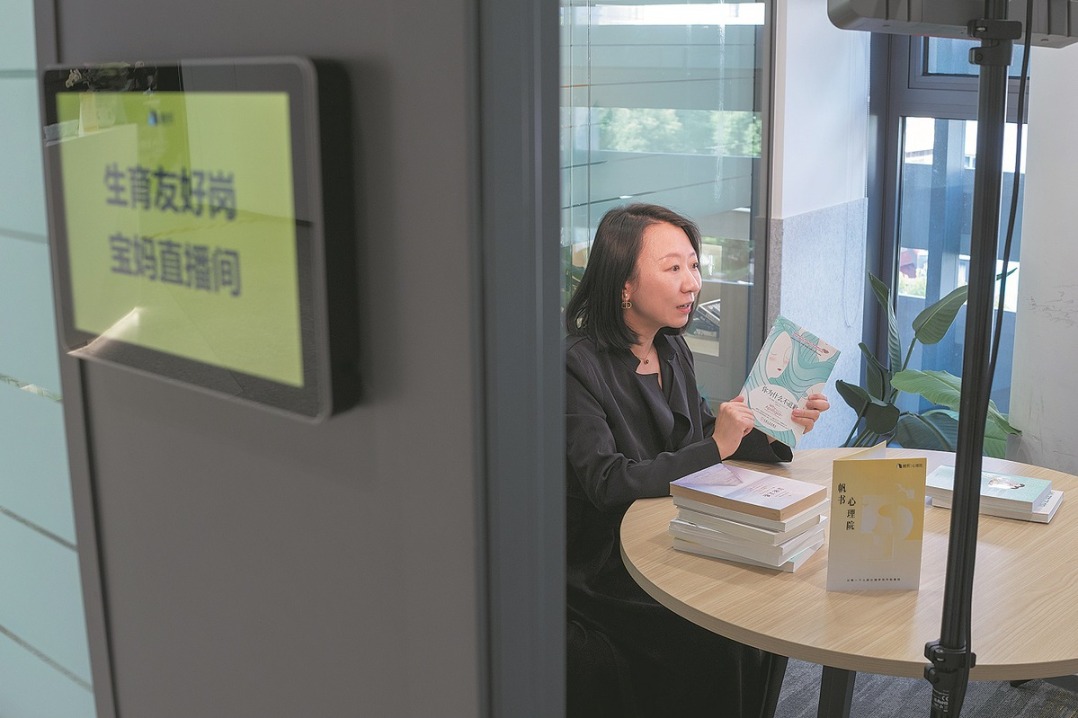'Birth-friendly' jobs boost options for working mothers
Forward-looking policies are helping women continue their careers


Flexible arrangements
Birth-friendly posts such as Meng's usually offer flexible working hours and opportunities to work remotely, which help employees balance work and pregnancy.
Besides the role of department director, Meng also does livestreams on Fanshu twice a week to promote reading, share her personal experiences, and help boost viewers' self-worth.
He Yanhong, a 36-year-old employee at the Shanghai Mengxiao Counseling Support Center, is another fortunate woman who had a smooth transition to becoming a working mother.
After giving birth in 2017, she spent about 11 months working remotely from home, where she was able to take good care of her baby while feeling positive about her career.
"The sense of feeling trusted, extremely valued and the warmth, made me more motivated and responsible for my work," said He. To smooth the process, she upgraded her skills and learned how to write official documents while also making strong contributions to the center's operation.
As a nonprofit private operation specializing in mental health services, the center has over 1,200 full-time and part-time psychological counselors and therapists in Shanghai. It has a further 4,000 counselor candidates on its self-developed service platform. Making the most of the profession's flexibility in work hours and locations, the center offers favorable options for working mothers seeking a balance between their careers and family.
Meng Xiao, founder of the center, said over 97 percent of her team are women, who she views as family members.
"We support each other a lot. A birth-friendly job may seem like a lesser post, but it actually offers a lot including a sense of security for a woman, her family and even her life," Meng said.
She added that setting up birth-friendly posts can be a practical option for business owners seeking a balance between economic benefits and social responsibility. This approach sends a positive signal, which is important when young people are becoming increasingly worried about getting married and having a child.























